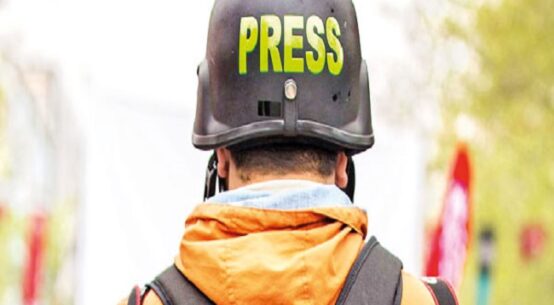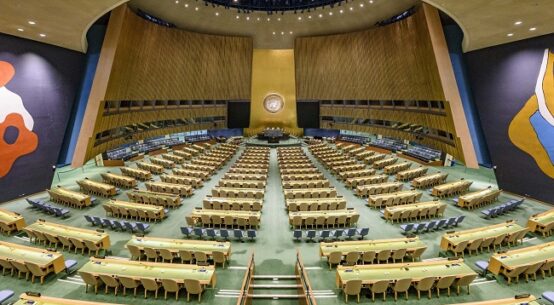
On October 11, the United Nations (UN) and its affiliated organizations hosted a conference discussing the increasingly dangerous and exploitative environment that plagues the internet and what can be done to protect children from being exposed to it. Speakers at this conference detailed the developing technologies that threaten children, such as Artificial Intelligence (AI), which often facilitates sexual abuse, exploitation, and human trafficking. In a world that is centered around digitization and innovation, it is crucial to keep the internet a safe space for the most vulnerable population, children.
“The EU (European Union) believes that access to digital technology is of crucial importance to children to participate in the digital decade and enact online citizenship”, stated Ambassador Hedda Samson, Deputy Head of Delegation of the EU.
Throughout the past two decades, the internet has been a fundamental tool for the education and development of children, helping to build critical social skills and fostering career initiatives. According to Mama Fatima Singhateh, United Nations Special Rapporteur on the Sale, Sexual Exploitation and Sexual Abuse of Children, almost 80 percent of people ages 15 to 24 are the driving force of connectivity, globally.
However, the digital age has also brought forth a rise in violent or sexually explicit content, which is linked to negative developmental effects on young brains. Samson adds that “In the past twenty years, the volume of online child sexual abuse material has increased dramatically and as we navigate the global-digital transition, we need to step up our game to ensure that children and young people are protected and empowered to face the challenges of the digital sphere”.
The rapid development of AI technology, as well as its increasing use in the past four years, has been of great concern for humanitarian organizations and children’s rights activists. Deepfake technology has made it possible for online predators to create and distribute realistic child sexual abuse material on a large scale. Additionally, many AI tools are unregulated, exposing children to potentially harmful content.
“While AI provides enormous potential to improve child protection, it simultaneously presents significant risks when used for illicit purposes. In 2023, the National Center for Missing and Exploited Children received over 4,700 reports of AI-generated child sexual abuse material, and in within nine months, a single dark web forum sold the upload of over 3,500 new AI created child sexual abuse images. This alarming trend underscores the urgent need for robust global frameworks to govern AI use”, stated the Ministry of Interior of the United Arab Emirates (UAE).
During the conference, Irakli Beridze, Head of the Centre for Artificial Intelligence & Robotics at the United Nations Interregional Crime and Justice Research Institute (UNICRI) discussed the UAE and the UN’s new collaborative effort titled “AI For Safer Children Global Hub” which monitors AI programs in an effort to increase transparency, accountability, and privacy, allowing for safe and responsible use.
This initiative uses over 90 AI tools to combat sexually abusive content and assist law enforcement, including image and text analysis, object recognition, voice detection, and facial mapping. Specialized training began in May of 2023 to prepare over 2,250 officers from over 28 countries to investigate children’s rights violations on the internet.
Some social media platforms have already begun initiatives to protect under age users from being exposed to graphic content. On September 17th, Instagram introduced their “teen accounts”, which are private accounts with more restricted features and increased parental control. Young users, including those who may attempt to lie about their age, are placed into private accounts where they can only interact with users that they follow. Additionally, Instagram has taken measures to restrict sexually abusive content, as well as content that promotes violence, self-harm, and disordered eating.
In April 2024, the Department of Homeland Security (DHS) launched Know2Protect, Together We Can Stop Online Child Exploitation, a public awareness campaign that partners with technology companies and youth organizations to increase national education on safe internet practices and signs of child exploitation. Know2Protect’s primary educational program, Project iGuardian, has provided over 82,000 children, parents, and educators with 950 presentations on internet safety and protective measures, resulting in over 41 victim disclosures of sexual exploitation and over 72 punitive investigations for offenders.
It is crucial to raise awareness among children and guardians, especially when considering that AI is evolving in its versatility and effectiveness on a daily basis. This issue demands an adaptive conversation that is accessible to children all around the world, particularly vulnerable populations, such as girls, children in developing countries, and LGBTQ children.
“We need to continue talking about sexual abuse and exploitation in the digital space. Especially in marginalized communities, like the Global South and least developed countries. I would like to see more harmonized laws so that perpetrators would not look for gaps or loopholes in respective laws to take advantage (of children)”, stated Fatima Singhateh.
Oritro Karim is a recent graduate from Rochester Institute of Technology and a working illustrator, graphic designer, painter, and writer.


